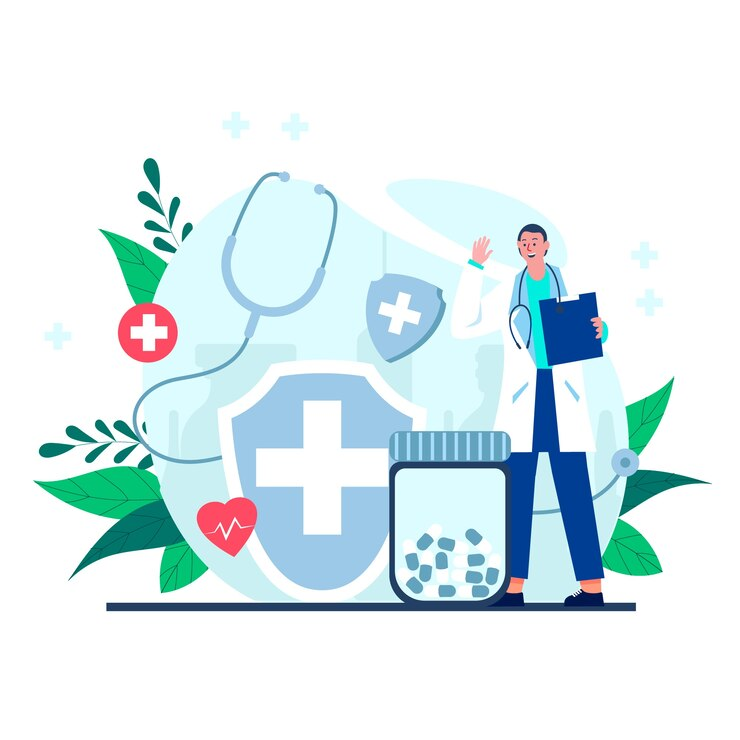Depression is a mood disorder that affects how a person thinks, feels, and acts, often leading to a persistent feeling of sadness and a loss of interest in activities once enjoyed. It can cause various emotional, behavioral, and physical symptoms, impacting everyday functioning. While it is normal to feel down occasionally, depression involves symptoms that last for weeks, months, or even longer, significantly interfering with daily life.
SYMPTOMS OF DEPRESSION:
- Persistent feelings of sadness, hopelessness, or emptiness.
- Loss of interest or pleasure in activities that were once enjoyable.
- Changes in sleep patterns (either sleeping too much or having trouble sleeping).
- Difficulty concentrating or making decisions.
- Changes in appetite or weight.
- Feelings of guilt or worthlessness.
- Thoughts of death or suicide (in severe cases).
Cause of Depression:
- Genetic Factors:
- A family history of depression can increase the likelihood of developing the condition. Specific genes may contribute to vulnerability, though genetics alone don’t determine if someone will develop depression.
- Biological Factors:
- Imbalances in brain chemicals (neurotransmitters like serotonin, dopamine, and norepinephrine) are thought to play a role in depression. These imbalances affect mood regulation and overall mental well-being.
- Hormonal changes (e.g., pregnancy, menopause, thyroid problems) can trigger or worsen depression.
- Psychological Factors:
- Past trauma, such as childhood abuse, the loss of a loved one, or significant life stress, can contribute to the development of depression.
- Individuals with negative thought patterns, low self-esteem, or a tendency toward pessimism are more likely to develop depression.
- Environmental Stressors:
- Life events like the loss of a job, relationship issues, financial problems, or experiencing a traumatic event can trigger depression.
- Chronic stress or ongoing difficulties (e.g., living in an abusive environment or facing ongoing hardships) can lead to depression.
- Medical Conditions:
- Depression can also be a result of medical conditions like chronic illness, heart disease, or cancer. Sometimes, medications used to treat other health conditions can contribute to depression as a side effect.
Treatment of Depression:
- Psychotherapy (Talk Therapy):
- Cognitive Behavioral Therapy (CBT): This is one of the most effective forms of therapy. CBT helps individuals identify negative thought patterns and replace them with healthier, more constructive ones.
- Interpersonal Therapy (IPT): This focuses on improving relationships and social functioning, which may be contributing to the depression.
- Psychodynamic Therapy: It explores past unresolved conflicts and their impact on current mental health.
- Medication:
- Antidepressants: These are commonly prescribed to help regulate the brain chemicals associated with mood regulation. Types of antidepressants include:
- Selective Serotonin Reuptake Inhibitors (SSRIs) (e.g., fluoxetine, sertraline)
- Serotonin-Norepinephrine Reuptake Inhibitors (SNRIs) (e.g., venlafaxine)
- Tricyclic Antidepressants (TCAs) and Monoamine Oxidase Inhibitors (MAOIs) are less commonly used but may be helpful for certain cases.
- Other Medications: Sometimes, mood stabilizers or antipsychotics are prescribed, especially when depression is accompanied by anxiety or other mental health conditions.
- Antidepressants: These are commonly prescribed to help regulate the brain chemicals associated with mood regulation. Types of antidepressants include:
- Lifestyle Changes:
- Exercise: Regular physical activity can boost mood by increasing endorphins and serotonin levels in the brain.
- Diet: Eating a healthy, balanced diet can have a positive effect on mental health. Omega-3 fatty acids, folic acid, and vitamin D are believed to be especially important.
- Sleep: Establishing good sleep hygiene and ensuring enough rest is essential, as poor sleep patterns can exacerbate depression.
- Social Support: Building a strong support system through friends, family, or support groups can help individuals feel less isolated.
- Alternative Treatments:
- Mindfulness and Meditation: These techniques help individuals manage stress, stay present in the moment, and develop healthier ways of responding to negative thoughts.
- Acupuncture: Some people find relief from depression symptoms through acupuncture, though the scientific evidence is still limited.
- Light Therapy: This is especially helpful for those with Seasonal Affective Disorder (SAD), a form of depression that occurs during the fall and winter months when sunlight exposure is reduced.
- Electroconvulsive Therapy (ECT):
- In severe cases of depression, where other treatments have not worked, ECT may be considered. It involves passing electrical currents through the brain while the patient is under anesthesia and is used for major depressive episodes.
- Transcranial Magnetic Stimulation (TMS):
- TMS is a non-invasive procedure that uses magnetic fields to stimulate nerve cells in the brain, especially in the areas thought to be underactive in people with depression.
Conclusion:
Depression is a treatable condition, and with the right support, many people recover or manage their symptoms effectively. It’s important to seek professional help if you or someone you know is struggling with depression. A combination of therapy, medication, lifestyle changes, and social support can lead to improved mental health and quality of life.



Leave a Reply